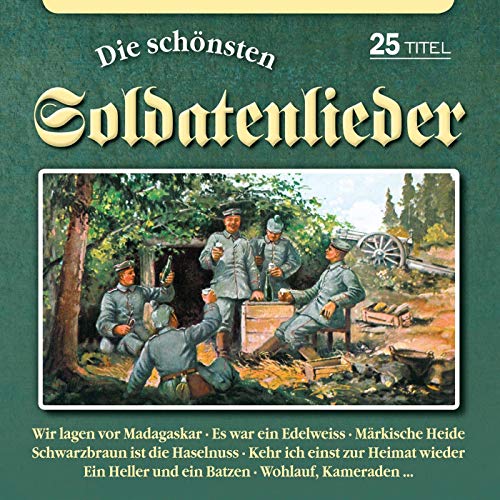

that of the Nazi Regime on the Federal Republic of Germany were two very different animals-and the songs and art associated with these regimes follow suit. While certainly the Red Army and the Soviet Union had its share of atrocities, the inheritance it bestowed on the Russian Federation vs. It too is essentially a wistful love song much like Erika-but again, here we see a common association with the Red Army despite the fact that it has since become a folk song in modern-day Russia. One can also look at another contemporary song from the Soviet Union-the song Katyusha-which was written in the late 1930s and became a popular song among the Red Army. This song has been thoroughly dissociated with the Nazi regime despite its origin for this reason, although it is still closely-associated with WW2. This song was later re-recorded for Allied forces by the German-American actress Marlene Dietrich (not entirely coincidentally), where it became so popular she later gave live shows to US forces operating in France and Germany. The lyrics were roughly as innocuous as those of Erika (both essentially are wistful love songs) except this song also happened to be popular with Allied troops operating in North Africa, who were able to pick up the radio waves from what is now Serbia.

I will compare the song with another contemporary piece: "Lili Marleen," which was first recorded in 1939 and was made popular by the German controlled Radio Belgrade in 1941. Even songs that were more distantly related than Erika were censored to varying extents-the Deutschlandlied had been in existence well before the rise of the NSDAP and yet it has been completely changed in the current German anthem due to the association of it with the Nazi regime. The very fact that if I search for the song "Erika" and am immediately confronted with results depicting WW2 German soldiers and other Nazi symbols attests to this association. While certainly the song remained popular after the war, it was primarily because of how popular it was among German soldiers, much like the American song "Dixie" is well-known even today despite the fact that it is absolutely tied to the Confederate States of America. I would argue that the song is very difficult to dissociate from the Nazi regime for this reason.
#Soldatenlieder verboten movie#
The song itself was very popular in the Wehrmacht and the Waffen-SS and is heavily associated with Nazi Germany in numerous media such as the 1993 movie Schindler's List where it is used as a Nazi motif. Login or register now to write a comment.Erika was written at some point in the 1930s by Herms Niel, who became what essentially was a musical propagandist for the Nazi regime after the Nazi rise to power in 1933. You have seen this movie? We are looking forward to your comment! Internationale Filmfestspiele Berlin (Catalogue) Comments War as an inner experience", it was banned in 1933 for its "subversive influence on the people’s willingness to defend themselves". Although Nazi propaganda leader Joseph Goebbels praised it in 1931, saying it was "a good film. Instead it presents a searing and realistic portrayal of the attritional effects of trench warfare, focusing on people who are "trying to do their duty amidst agony and confusion" (opening title). There are virtually no battle scenes in this film version of the English play it is rather more an "intimate drama in the trenches". But it is only with reluctance that he follows orders to send Raleigh and his companions on a reconnaissance mission that will almost certainly end in death. He is ready to hold the lines before the expected German offensive until the bitter end, sacrificing himself and his men as necessary. Although the horrors of war have turned the latter into a heavy drinker, he is still a conscientious soldier. Young, inexperienced lieutenant Raleigh discovers that his sister’s fiancé, Captain Stanhope, is now his company commander. Spring 1918 in a British officer's dugout on the western front.


 0 kommentar(er)
0 kommentar(er)
